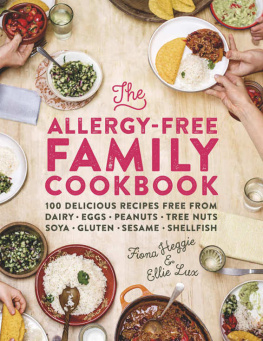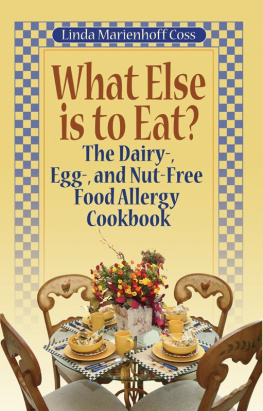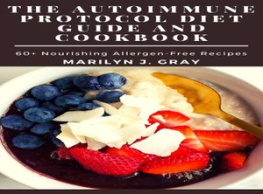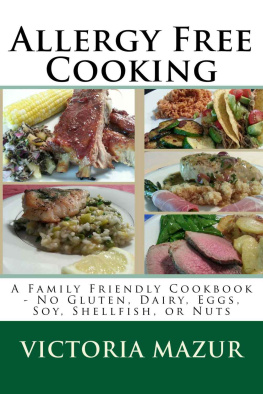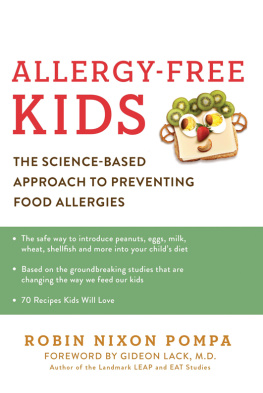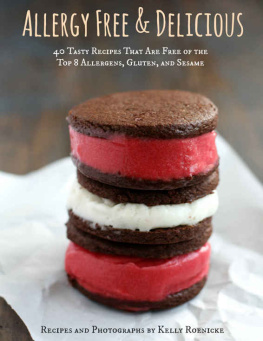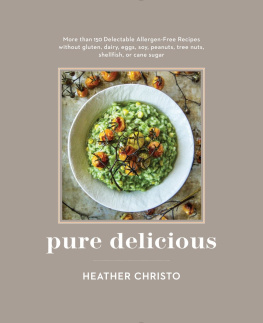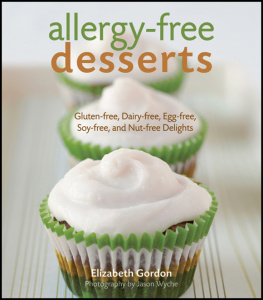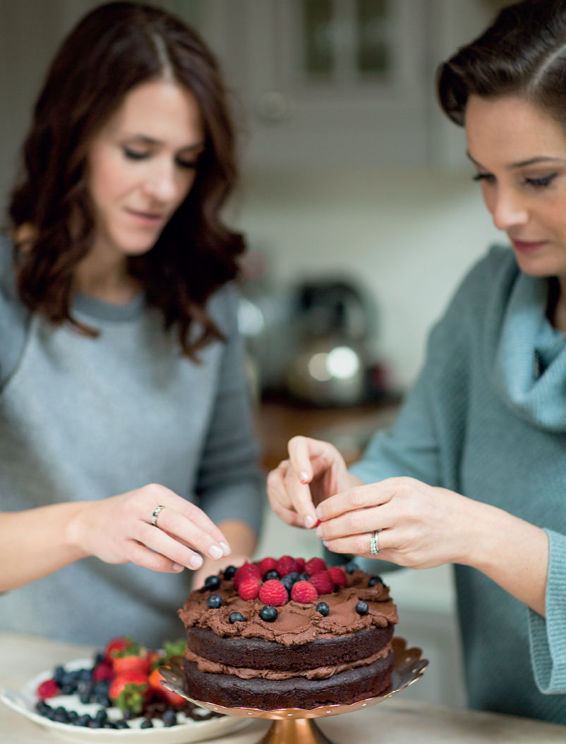
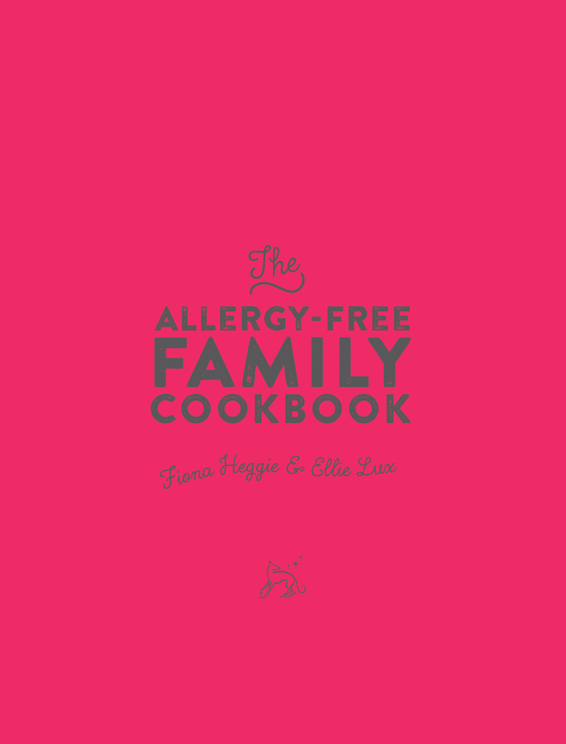
CONTENTS
Our book is not intended to provide medical advice. While weve taken care to provide information based on what weve found helpful with our children, the suggestions here are not meant as dietary advice or as a substitute for consulting a doctor, dietitian or other medical professional. It is the sole responsibility of the reader to determine which foods are appropriate and safe for his or her family to consume. Fiona Heggie and Ellie Lux
Its daunting when your child is diagnosed with a food allergy. You immediately focus on the negatives: the foods they cant eat, the meals they wont get to enjoy, the nutrients that will be missing from their diets and the hassle involved in adapting recipes, eating out and checking food labels.
This book is about the positives. Just because your child is allergic to one or, indeed, several foods doesnt mean that they cant eat delicious meals with the rest of the family and benefit from a balanced diet or nice treats should they deserve them! The truth is that there is an almost endless range of meals that you can cook for your children using ordinary ingredients readily found in every supermarket.
It is also worth remembering that youre not alone. Allergies are on the increase with 6 percent of children now being diagnosed as allergic to one or multiple foods. That includes our children. And yet, when Isabelle and Casper were diagnosed with multiple food allergies, we found that there was surprisingly little practical advice out there or cookbooks that catered for multiple food allergies.
WHERE IT ALL STARTED
Ellies daughter, Isabelle, had severe eczema as a baby and still suffers with asthma, which has resulted in numerous hospital stays. When she first ate a piece of cheese, Isabelle immediately came out in hives all over her body and face and both her eyes puffed and closed up she was quite clearly allergic to dairy. She subsequently tested positive for immediate allergies to egg, sesame and peanut (from which she is at significant risk of anaphylactic shock). Isabelle also gets hayfever and is allergic to dogs and house dust mites. She has, in other words, what the doctors refer to as a very typical (if quite severe) atopic profile.
Fionas son Casper has an immediate allergy to egg, which was discovered in testing when he had severe eczema and was clearly a problem when he ate some cake and reacted immediately. As with Izzy, subsequent testing showed he also had an immediate allergy to peanuts. In addition, Casper has delayed allergy to gluten, which caused him severe gastrointestinal problems. And there was a time when he couldnt eat dairy or soya either as he had to eliminate these foods in order to help determine which allergen was causing the problems. He is one of the increasing number of children who have a combination of immediate and delayed food allergies, which meant his diagnosis was less straightforward than Isabelles but the management of both types is the same: avoid the food allergens causing the problems.
We would, of course, rather that our children werent allergic to anything. There have been scares, frustrations and inconveniences. But in the grand scheme of things, they have been minor.
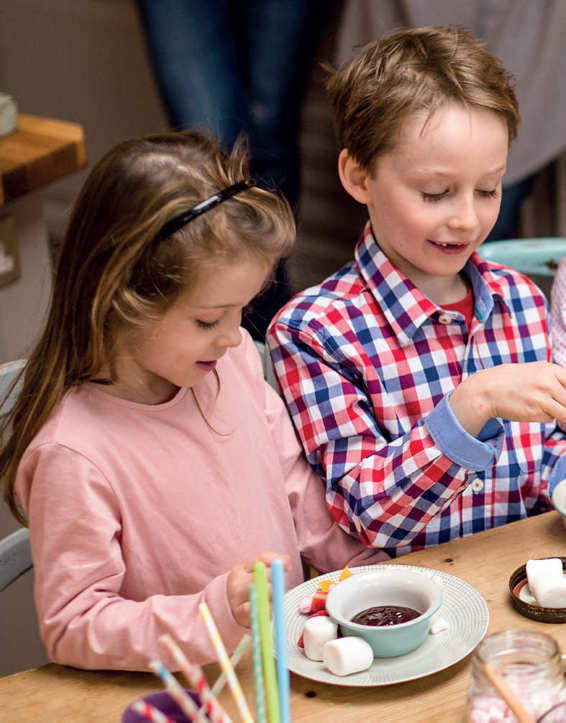
ENDORSED BY EXPERTS
We have both been lucky to have had wonderful support from doctors and dietitians. Dr Helen Cox is one of just a handful of paediatric consultants specialising in allergy and immunology. Dr Rosan Meyer is a leading dietitian focusing on food allergy in children. They both run clinics where they see hundreds of children with food allergies every year and we are very grateful to them for lending their expertise in reviewing and endorsing this book.
OUR FRIENDSHIP
We have been friends since we were 11-years-old and our two families spend a lot of time together. We often compared notes about cooking healthy food for our kids (preferably without slaving for hours in the kitchen to produce it). If either of us was cooking a meal that Isabelle and Casper were both eating, it had to be free from five different food allergens. It was over one of those meals that we came up with the idea for this book.
Fiona has always been passionate about food; she trained at Leiths School of Food and Wine in London and has run a successful catering business. Before Isabelle was born Ellie could barely boil an egg. Fiona was the brains behind most of the recipes, but if Ellie couldnt cook them they didnt make it into the book.
The result is a collection of over 100 recipes that are delicious, healthy, quick and easy to cook, and can be enjoyed by your whole family. All the recipes just happen to be free of eight common allergens: dairy, eggs, peanuts, tree nuts, soya, gluten, sesame and shellfish.
ADJUSTING THE RECIPES
We are conscious that most children wont be allergic to all eight allergens; more likely itll be a combination of a few or a couple of them. So weve explained how you can add back the ingredients to which your child is not allergic theres no point eliminating foods unnecessarily when your childs diet is already restricted.
MAKING LIFE EASY
We are busy parents and know its crucial that feeding your child fits easily into the rest of your life. We both have younger children, Camille and Zara, who have no allergies, but they always eat the same meals as their older siblings. Weve arranged our recipes into categories we found helpful and that reflect how we cook for our children. Your whole family can enjoy these meals and theres no need to cater separately for your allergic child or for them to feel theyre being treated differently or missing out.
ADVICE AND TIPS
But this is more than just a cookbook. Food allergy clearly needs to be taken seriously, but it does not have to change your life with the right advice it can actually be straightforward to manage.
So in this book weve also shared what weve learned from our experience in managing food allergy.
We hope that the result is more than just a cookery book with wholesome, tasty family recipes using ordinary ingredients; it is also a handbook that any parent can rely on and refer to for accurate information and advice on every practical aspect of dealing with their childrens food allergies.
Dr Helen Cox is a leading expert in her field paediatric allergy and immunology and has extensive experience in the management of children with food allergy. She is one of the clinical lead consultants in paediatric allergy at Imperial College Healthcare NHS.
If your son or daughter is one of the six percent of children in the UK diagnosed with a food allergy then you are bound to have questions. Lets start with the most difficult one first.
WHY IS FOOD ALLERGY ON THE INCREASE?
There has been plenty of research into food allergy but, disappointingly, much of it has yielded conflicting results.
The lower rates of eczema, food allergy, asthma and allergic rhinitis in Third World countries lead experts to believe that the increase in allergies could be down to relatively recent changes in developed world lifestyles. There are a variety of theories that focus on genetics, epigenetics (the study of how genes can in some circumstances be altered by external factors), the environment, diet and infections.
But the frustrating answer is that we still dont know.
WHAT IS THE DIFFERENCE BETWEEN FOOD HYPERSENSITIVITY, FOOD INTOLERANCE AND FOOD ALLERGY?
Next page
